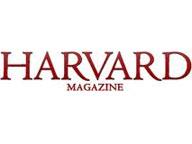Faculty News
—
Prof. Scott Galloway discusses the evolution of Black Friday
—
Excerpt from Bloomberg -- "I think these defined moments of shopping are becoming less important and people are getting more confidence with the research that they do online that these products will be available for a while, so that the definitive 24-hour 'just-buy-now' is losing credibility, especially when you see Black Friday moving into Thanksgiving. So, I just don't think people are as worried they're going to miss out."
Faculty News
—
Excerpt from Bloomberg -- "I think these defined moments of shopping are becoming less important and people are getting more confidence with the research that they do online that these products will be available for a while, so that the definitive 24-hour 'just-buy-now' is losing credibility, especially when you see Black Friday moving into Thanksgiving. So, I just don't think people are as worried they're going to miss out."





















